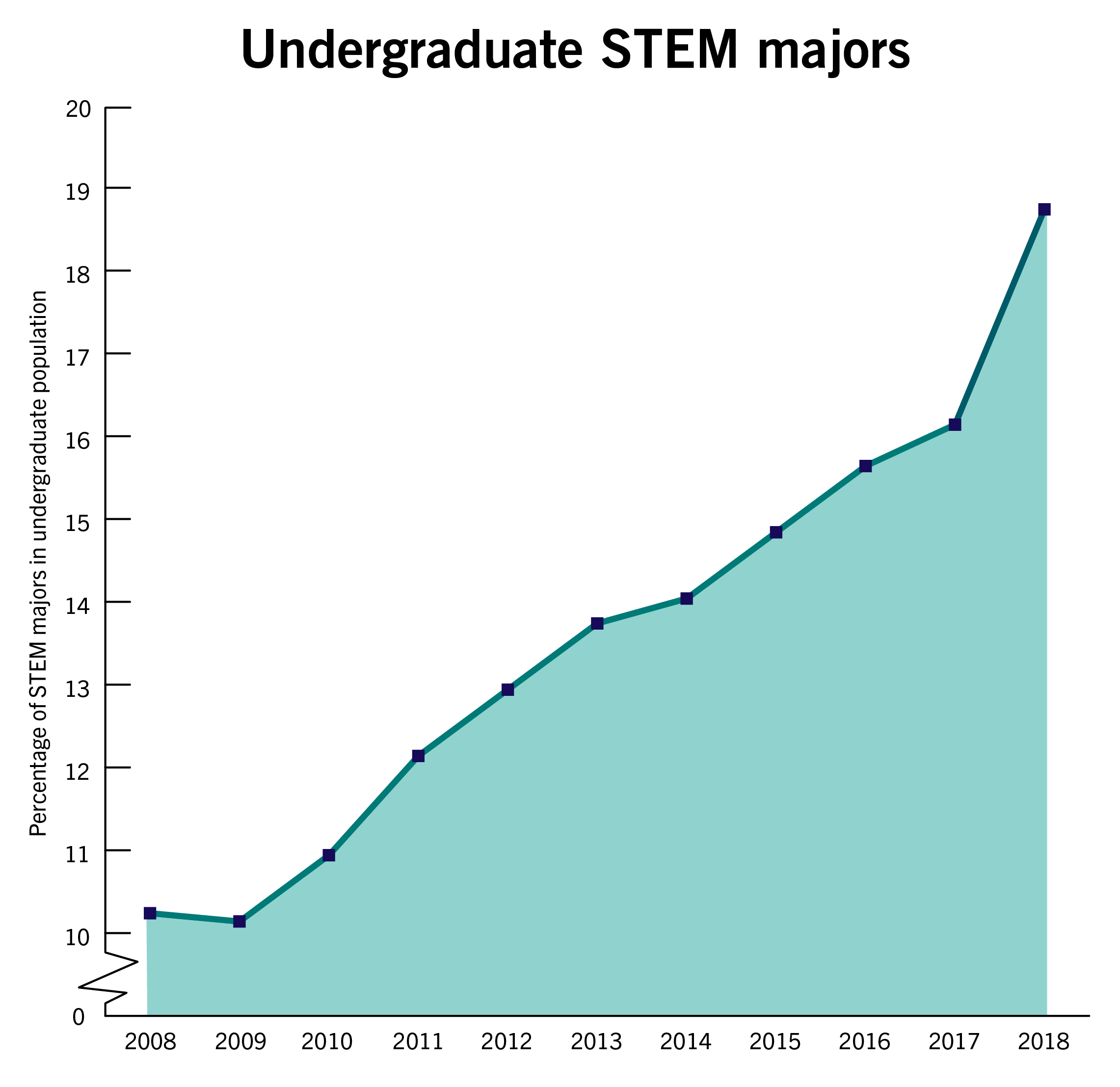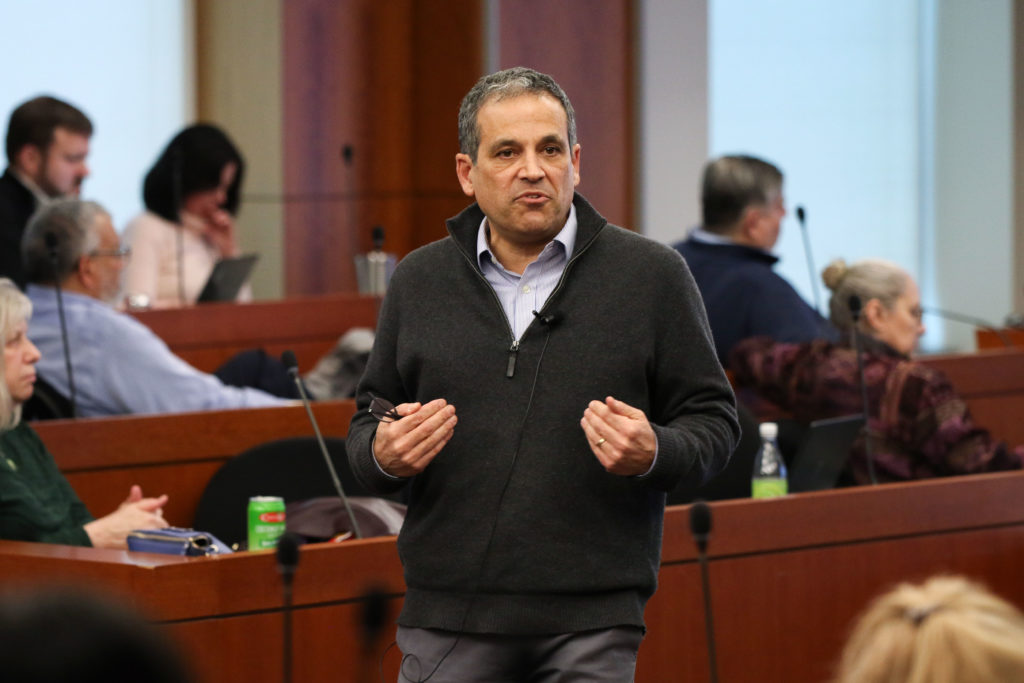More undergraduates are majoring in science, math, engineering and technology fields than ever before, but officials said GW is still lagging behind other top universities.
Undergraduate enrollment in science-related topics increased by nearly 9 percentage points over the past 11 years, hitting 19 percent last fall, officials said at a Faculty Senate meeting Friday. University President Thomas LeBlanc said the increase is welcome, but the University must further increase its share of STEM majors if it wants to compete with other selective research institutions.
LeBlanc said GW enrolls nearly the lowest proportion of STEM majors among roughly 30 private universities in the nation, second only to Georgetown University. He said at least 30 percent of the undergraduate population should major in STEM fields to compete with other “serious” universities.
“If we’re talking about being a preeminent institution, we have to look at the comparative data and admit we’re not going to get there unless we start to have a heavier focus on STEM both in our faculty, in our facilities and in our student enrollment,” LeBlanc said.

Alyssa Ilaria | Hatchet Designer
Annual Report on Core Indicators
More than 2,200 students pursued bachelor’s degrees in STEM fields in 2018, up almost 400 from the year before and more than double the number of majors in 2008. The data includes students in all five residential colleges, the College of Professional Studies and the School of Medicine and Health Sciences, according to the presentation.
“I believe we can no longer aspire to preeminence with that small a fraction of our student body studying STEM subjects,” LeBlanc said. “But I also think our social science students, our humanities students, our international relations students need more access to those skillsets.”
LeBlanc came to GW in 2017 with a background in computer science and has since spent much of his time at the University bolstering research and science endeavors. His focus on STEM has also bled into other areas of the University, including selecting Marcia McNutt, the president of the National Academy of Sciences, to speak at the University-wide Commencement last year.
When students complained about the speaker, LeBlanc was captured on a recording saying he could “live with” the criticism because “privileged” non-STEM students were the most upset.
Provost Forrest Maltzman said the enrollment increase correlates with the University’s efforts to expand STEM majors and classes, like the 2014 launch of the biomedical engineering department, which he said is the “fastest-growing” major at GW.
Maltzman said officials are also “exploring” ways to incorporate data analytics into all majors across campus. Officials announced earlier this semester that the computer science department would expand the number of spots available for students to take Introduction to Programming with Python in the fall.
“I think it’s very reasonable to expect a continued growth in the STEM field given the changes that we’ve been making,” Maltzman said in an interview.
Laurie Koehler, the senior vice provost for enrollment and the student experience, said opening the Science and Engineering Hall in 2015 has likely attracted more students to enroll in STEM classes because of the new “cutting-edge” facilities, including advanced lab space.
Koehler also pointed to the University’s recent decision to launch a Bachelor of Science in international affairs, which officials said will make it easier for students to double major in both international studies and science.
“To be able to have students double major in computer science and something else, we’ve eliminated administrative barriers for students studying across schools, which is really important,” Koehler said.
Harald Greisshammer, an associate professor of physics and a member of the Faculty Senate, said it is no surprise that GW is “lagging seriously” behind its peers in STEM enrollment.
“That is the manifestation that GW always thought, ‘We are big in law, we are big in media and public affairs, we are big in journalism,’ but it hasn’t perceived itself really as a STEM school,” Griesshammer said.
He said that because GW is not “recognized nationally” for STEM programs, prospective students who may not know what they want to major in but are interested in science may choose other schools.
“GW has huge growth potential in the STEM field, and strength in STEM should not come at the expense of strengths in other areas,” Greisshammer said.
Parth Kotak contributed reporting.





